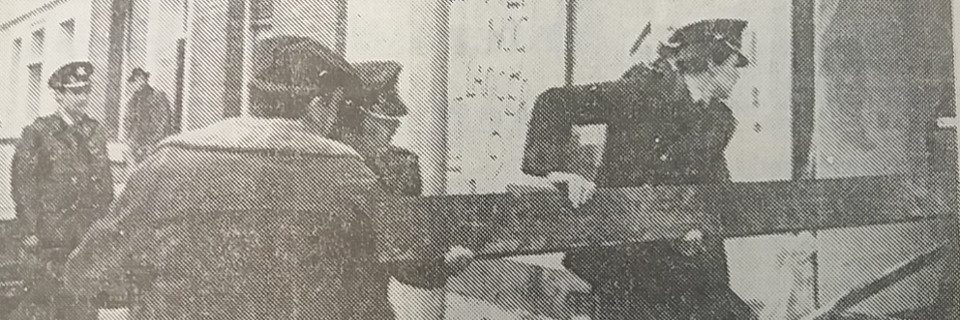Anarchist and Left-Libertarian Perspectives on the Geographies of Peace
GEOGRAPHIES FOR PEACE / GEOGRAFÍAS PARA LA PAZ
23- 25 April/abril 2017
La Paz, Bolivia
Anarchists and other Left-Libertarians; Geographers and Non-Geographers alike. La Paz. 2017.
Since the 1833 publication of The Peaceful Revolutionist, a weekly paper edited by Josiah Warren and the first anarchist periodical ever produced, left-libertarianism has embraced the idea of non-violence. In this session we want to welcome the opportunity for participants to think through how the concept of ‘peace’ has been insufficiently discussed and yet necessarily underlies anarchist practices and left-libertarian debates. Potential themes include: the promise of new internationalism(s) and free federation(s); the potentialities and limits of transnational activism in terms of overcoming injustice worldwide; the plurality of traditions and the multiplicity of left-libertarian contributions to the analysis of social conflicts; the permanence of certain prejudices, such as the stigma and caricature of anarchists as ‘people intrinsically fond of violence’; the potentialities and limits of non-violence as a political strategy; the possibilities of constructive struggle for freedom and justice in the context of capitalism’s ‘structural violence’; and the prefiguration of peaceful alternatives to policing and punishment.
Within the framework of heteronomous capitalist societies, and particularly for (semi)peripheral countries − ‘peace’ cannot be fully realized. A left-libertarian perspective demands that capitalism be seen as a form of structural violence, which limits the space, time, and coherence of peace. Under the integral systems of capitalism and statism, so-called ‘peace’ can only be achieved through oppression and repression, which is inevitably challenged by the eventual eruption of protest and resistance. The achievement of this kind of ‘peace’ is consequently mere illusion, while protest and resistance, often maligned as ‘violence’, can instead be understood as responses to the pervasive social pathologies of capitalism and the state and the forms of violence they engender.
Peace possesses an intrinsic value for anarchists and left-libertarians, both ethically and aesthetically. A commitment to meaningful and lasting peace is necessarily the true antipode of fascism, an ideology rooted in notions of military ‘glory’ and the worship of brute force. A bourgeois liberalism and its formal and superficial ‘rule of law’ is not enough to contest these catastrophic impulses, while anarchism and left-libertarian streams provide an answer in the form of rejecting state sovereignty and the very notion of a ‘monopoly of violence’. And so in the face of profound violence, on the libertarian-left we ask, under which circumstances can peace be achieved in an apt and durable way? How can anarchist geographies help us understand the logic of social struggle and the possibilities of peace at various scales? To what extent have left-libertarian traditions added to our understanding of these challenges, and how can anarchism and left-libertarian perspectives more generally contribute to a peaceful future?
Please send abstracts to both proponents by December 15, 2015.
Marcelo Lopes de Souza (Federal University of Rio de Janeiro, Brazil) mlopesdesouza@terra.com.br
Simon Springer (University of Victoria, Canada) springer@uvic.ca

Leave a Reply